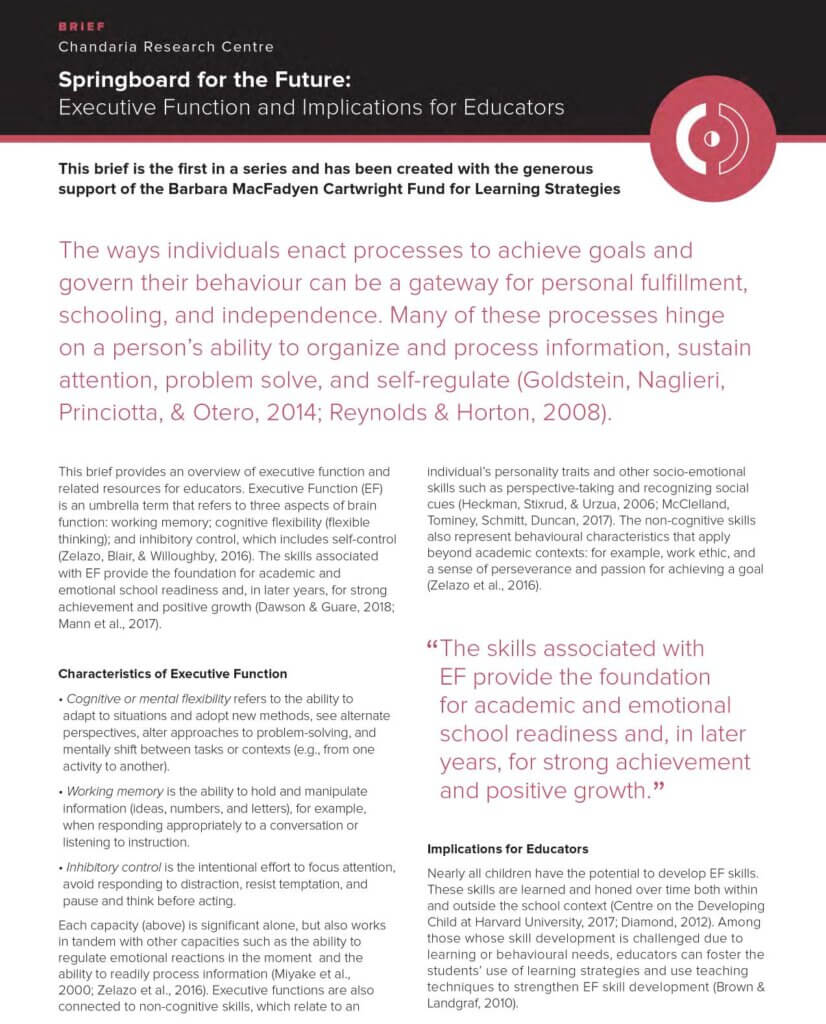Branksome Hall

Springboard for the Future: Executive Function and Implications for Educators
Overview
This brief provides an overview of executive function and related resources for educators. Executive Function (EF) is an umbrella term that refers to three aspects of brain function: working memory, cognitive flexibility (flexible thinking); and inhibitory control, which includes self-control (Zelazo, Blair, & Wiloughby, 2016). The skills associated with EF provide the foundation for academic and emotional school readiness and, in later years, for strong achievement and positive growth (Dawson & Guare, 2018; Mann et all., 2017).
Implications for Educators
Nearly all children have the potential to develop EF skills. These skills are learned and honed over time both within and outside the school context (Centre on the Developing Child at Harvard University, 2017; Diamond, 2012). Among those whose skill development is challenged due to learning or behavioural needs, educators can foster the students' use of learning strategies and use teaching techniques to strengthen EF skill development (Brown & Landgraf, 2010).
Weak EF skills can impact the ability to organize materials, take tests, manage time, keep tasks in order, and initiate actions.
Educators can use different strategies to support students in developing their EF capacities. For example, they can help students acquire organizational skills by giving verbal information slowly and clearly, incorporating visual or verbal cues (e.g., orally repeating a task}, and by having students chunk out large tasks into smaller actions. Since the needs of each student are different, educators need to understand how a particular student's abilities can be fostered through the development of particular EF skills, with the ultimate goal of helping them succeed in school environments.
Researchers and clinicians confirm that EF capacities can and should be explicitly taught by teachers to all children. Peg Dawson and Richard Guare (2009), American researchers and authors on child and adolescent EF development, affirm that "childhood offers parents and teachers a critical opportunity to enhance the learning development of executive skills in a child" (p. 21). Students need to be able to retain information, focus attention, filter distractions, and switch mental gears, and the complexity of these tasks increases as they progress through the education system. The digital age has also changed the demands on children, requiring independence at a young age. As Lynn Meltzer (2010) states, "students are now required to organize and integrate a rapidly changing body of information that is available through the Internet and to take greater responsibility for their own learning" (p. 3).







